No more ‘roasted husband’ and ‘deformed man toilet’: China clamps down on poor translations
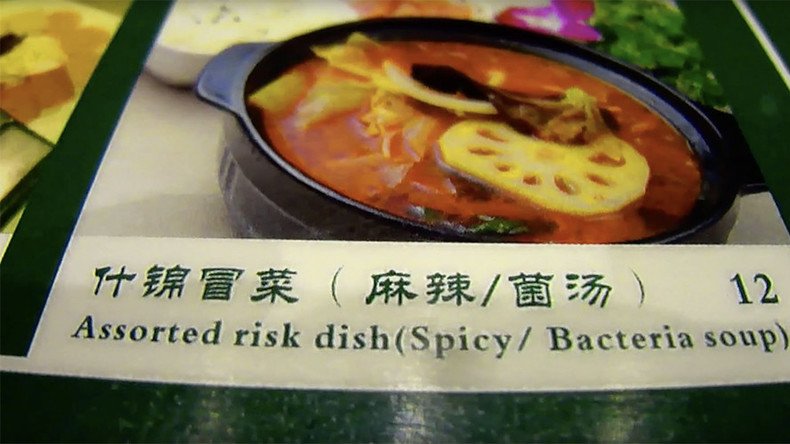
Inventively mangled foreign-language versions of signs and menus have become an iconic feature of China, but the government is imposing a compulsory list of 3,500 common translated phrases for public use in a bid to rid the country of Chinglish.
Starting from December, the Standardisation Administration, Ministry of Education, and General Administration of Quality Supervision, Inspection and Quarantine will issue a new guide, while encouraging sign-makers to “prioritize correct grammar” and avoid misleading direct translations.
Particular focus will be on translations that are offensive, discriminatory, or unpatriotic.
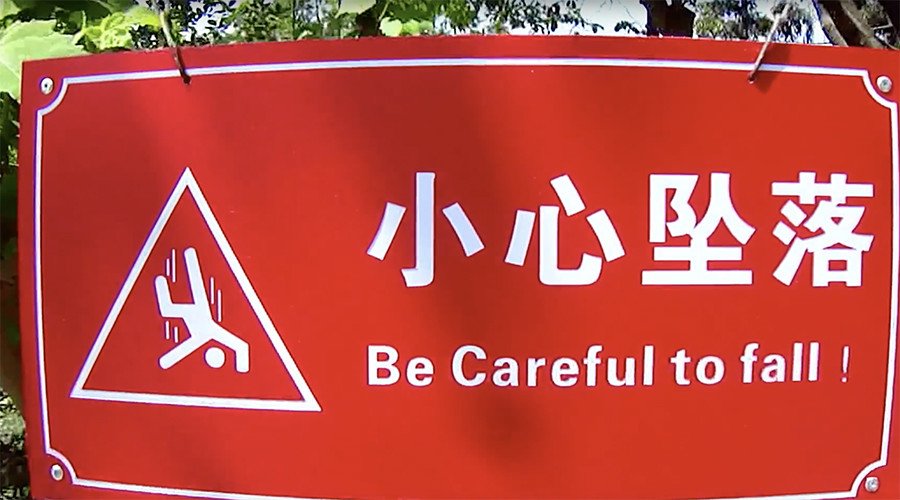
Wrong translations “damage the country’s image,” while better use of foreign languages in public spaces will pave the way for the “development of a multilingual society,” officials explained in an article published in the state-owned People’s Daily.
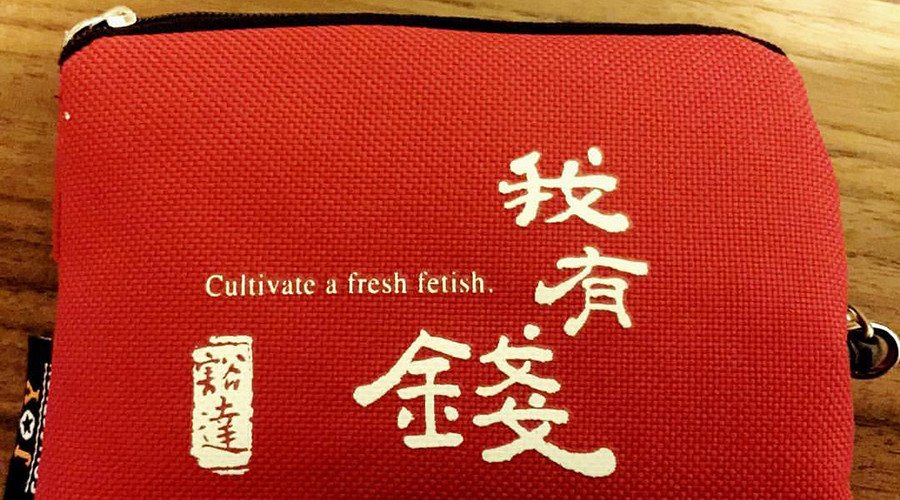
The rapid opening up and economic development of a country, where most do not read foreign alphabets or speak other languages, in the past several decades has produced a demand for foreign-language texts that is simply not matched by the requisite expertise.
It is forbidden to dog apparently #Lift#Chinglish#China#taitaipic.twitter.com/jO9mAkZuwB
— Tàitai Shanghai (@TaitaiShanghai) 30 March 2017
Common mistakes fall into several categories.
The simplest are inelegant, but essentially correct translations, such the visually prominent ‘Dongda hospital for anus and intestine disease Beijing,’ located in the country’s capital.
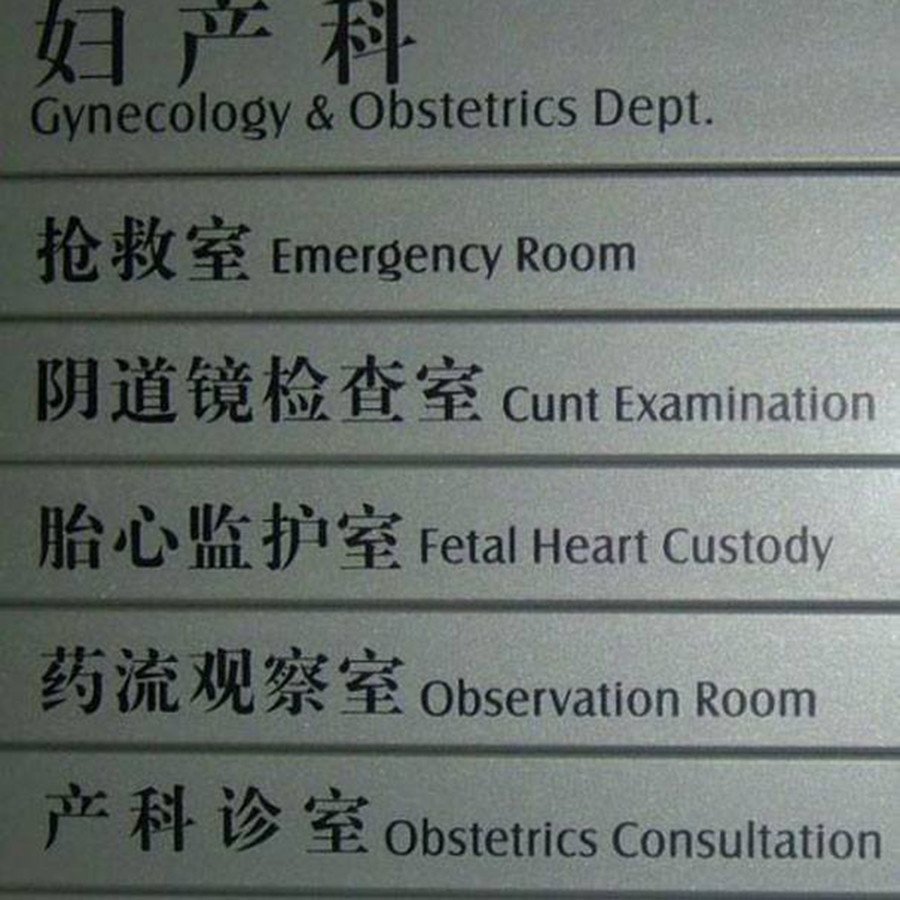
Also common is the use of semantically-related words to create an unintended meaning. This is how Chinese bomb-sniffing canines came to wear signs reading ‘Explosive Dog,’ and why Beijing’s Park of Ethnic Minorities became ‘Racist Park’ ahead of the 2008 Olympics, following another local campaign for clearer English-language signs.
Then there are the devilishly creative translations of seemingly simple concepts: a ‘Wet Floor’ sign is rendered ‘The slippery are very crafty,’ while lawns must not be walked on because ‘Tiny grass is dreaming.’
#chinglish#tuesdaythoughtpic.twitter.com/fDHj8aNwR6
— Jo Taylor (@JoMusician) 7 March 2017
The final category is the downright incomprehensible and frequently violent imagery assigned to apparently innocent images and instructions: menus filled with ‘F*ck the duck until exploded’ and ‘Sixi roasted husband,’ and ‘No entrance’ signs reading ‘Execution in progress.’
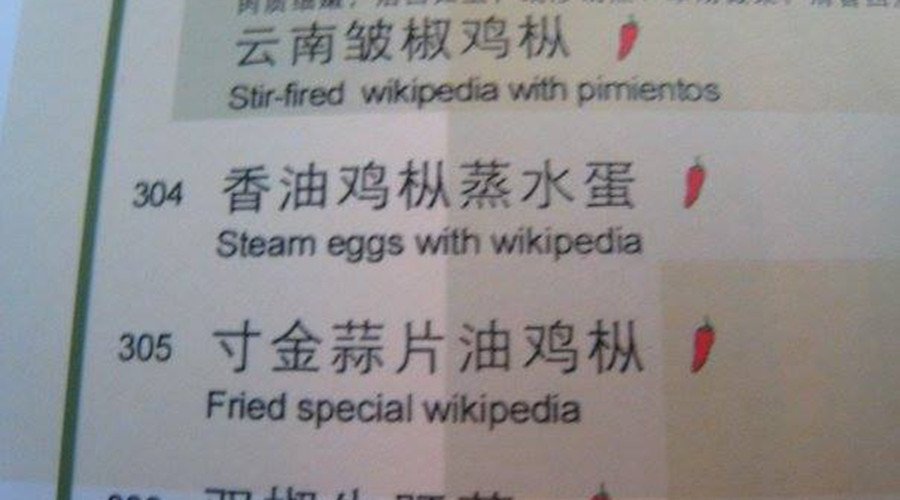
#chinglishpic.twitter.com/L1Tr6V9Qm7
— NinjaCyborg (@NinjaCyborg) 16 June 2017
A separate mention is reserved for outright inter-language fails, such as the case of a hair salon whose banner above the door proudly declares ‘Could not connect to translator service.’
That's a horrible name for a barbershop! pic.twitter.com/1GaKaPELCy
— Minh Le (@GoosemanCS) 31 May 2017
While the growing English-speaking population of China will have less reason to cringe, some are already lamenting the disappearance of an idiosyncratic culture.
Hahah! Brilliant! This is as bad (or good) as this pic I took in a restaurant some time back.... LOL. #Chinglishpic.twitter.com/1rVJZMNMRc
— Windson Liong (@WindsonLiong) 1 March 2017
Some more fun from #chinglish and Russian translation at the Great Wall pic.twitter.com/uklzqM90jx
— Космаенко Дарья (@dashakosmi) 22 June 2017
“Bad translations on signage, menus and whatnot have been part of China’s charm since I first visited 30-something years ago,” Ray Kwong, senior adviser to the University of Southern California’s US-China Institute, told the South China Morning Post.












